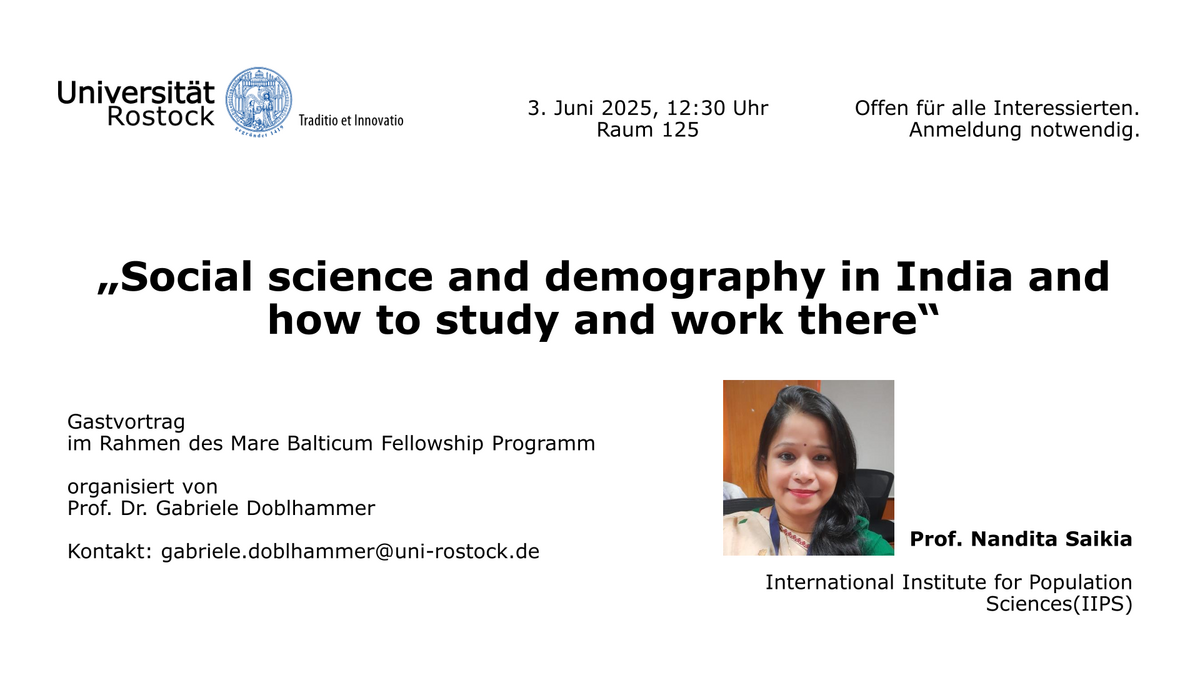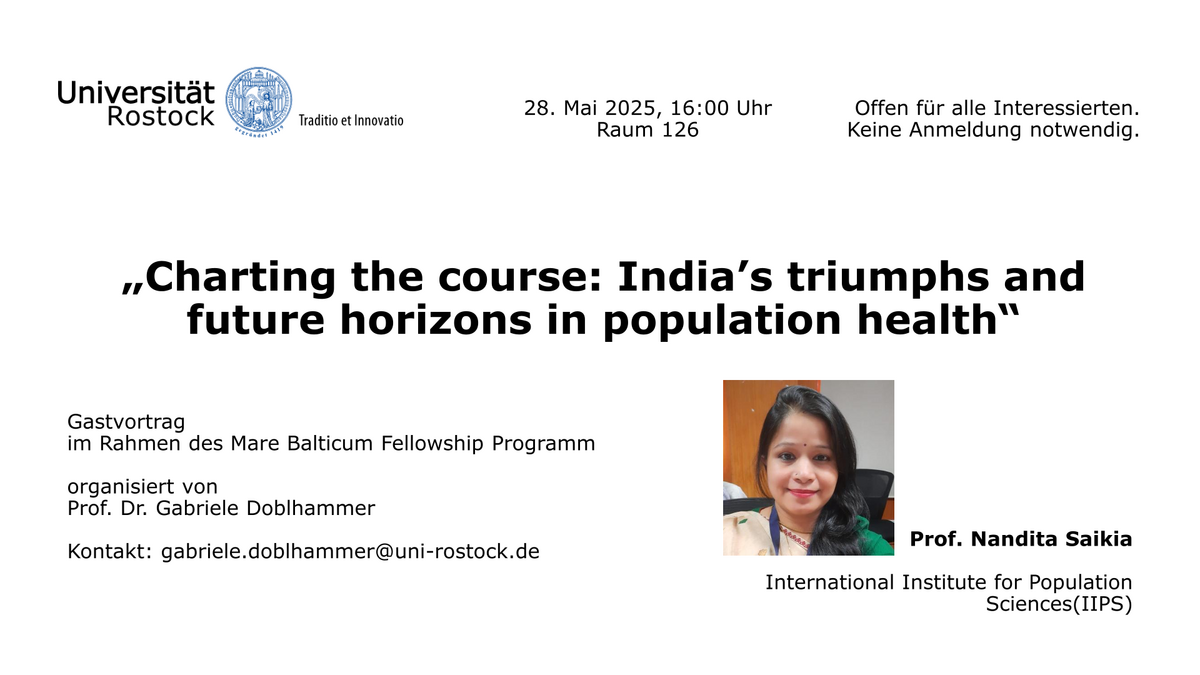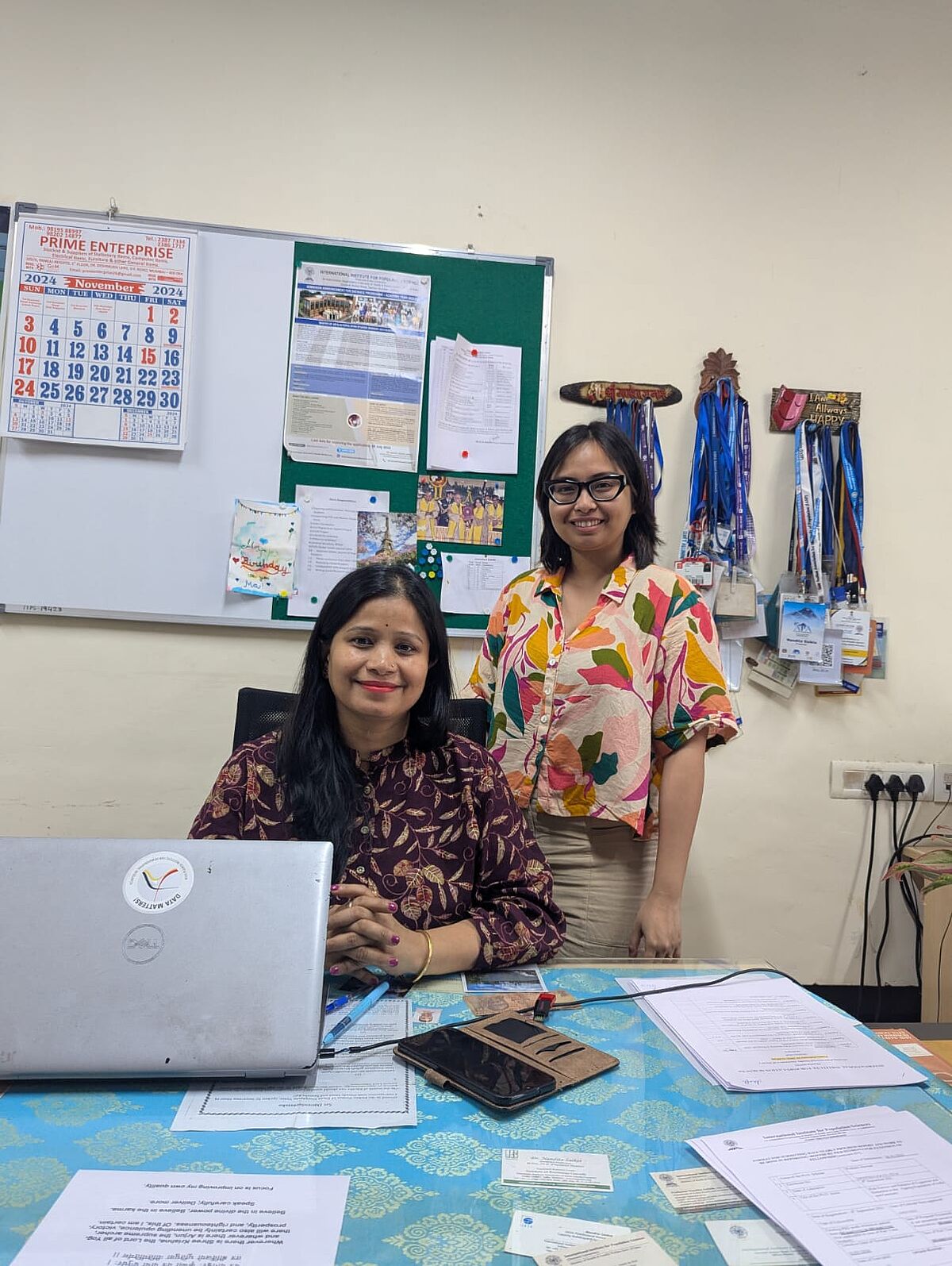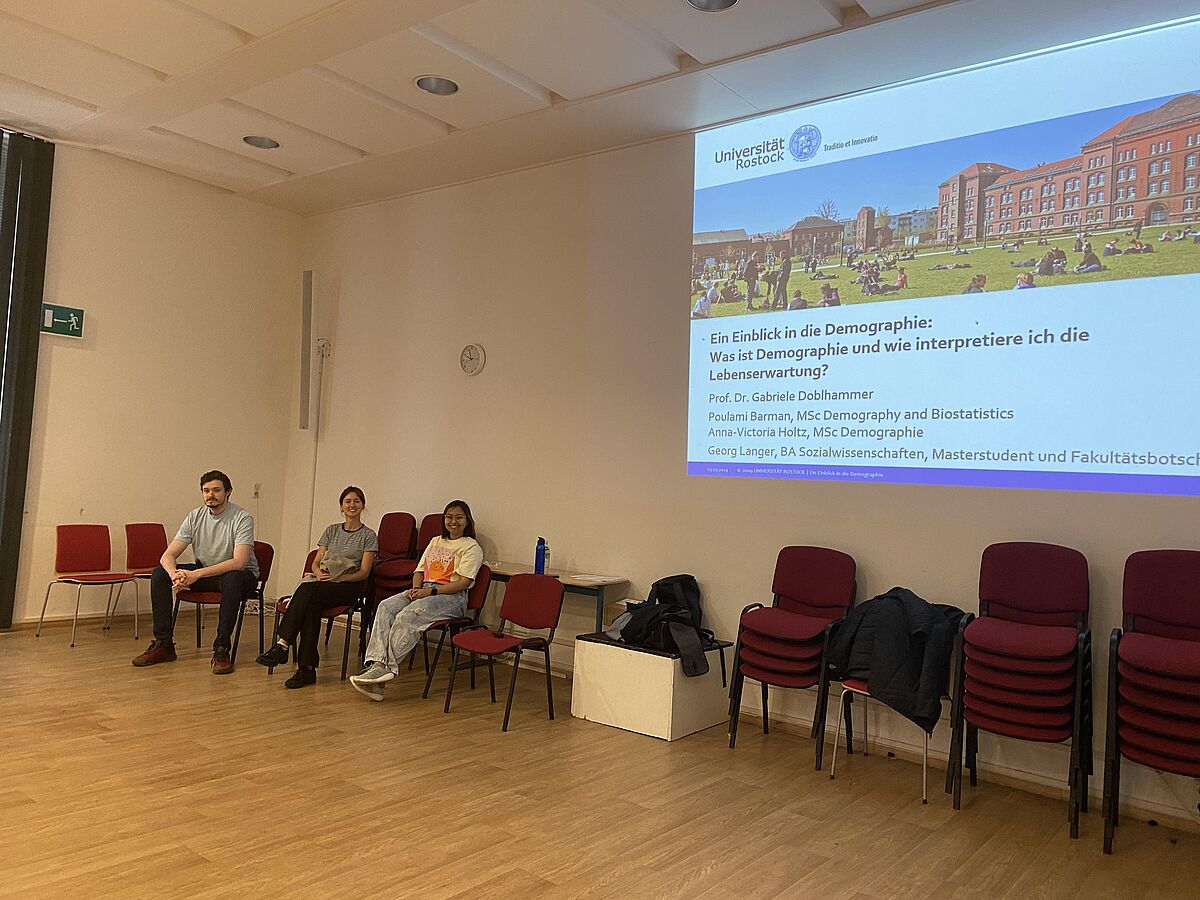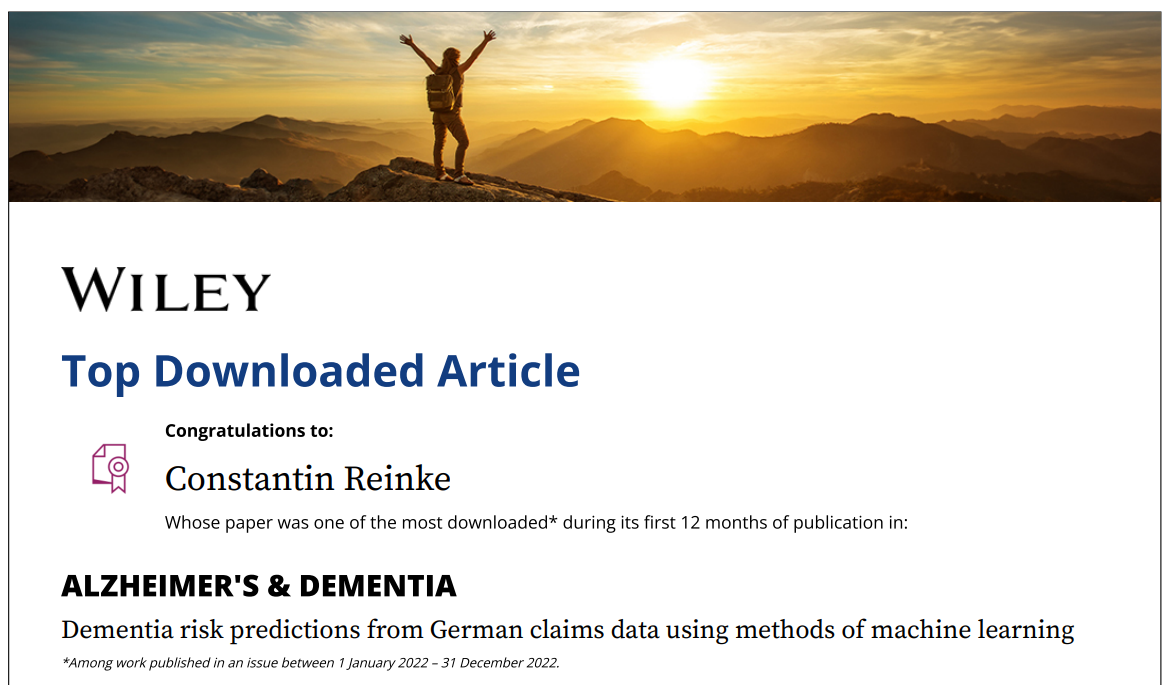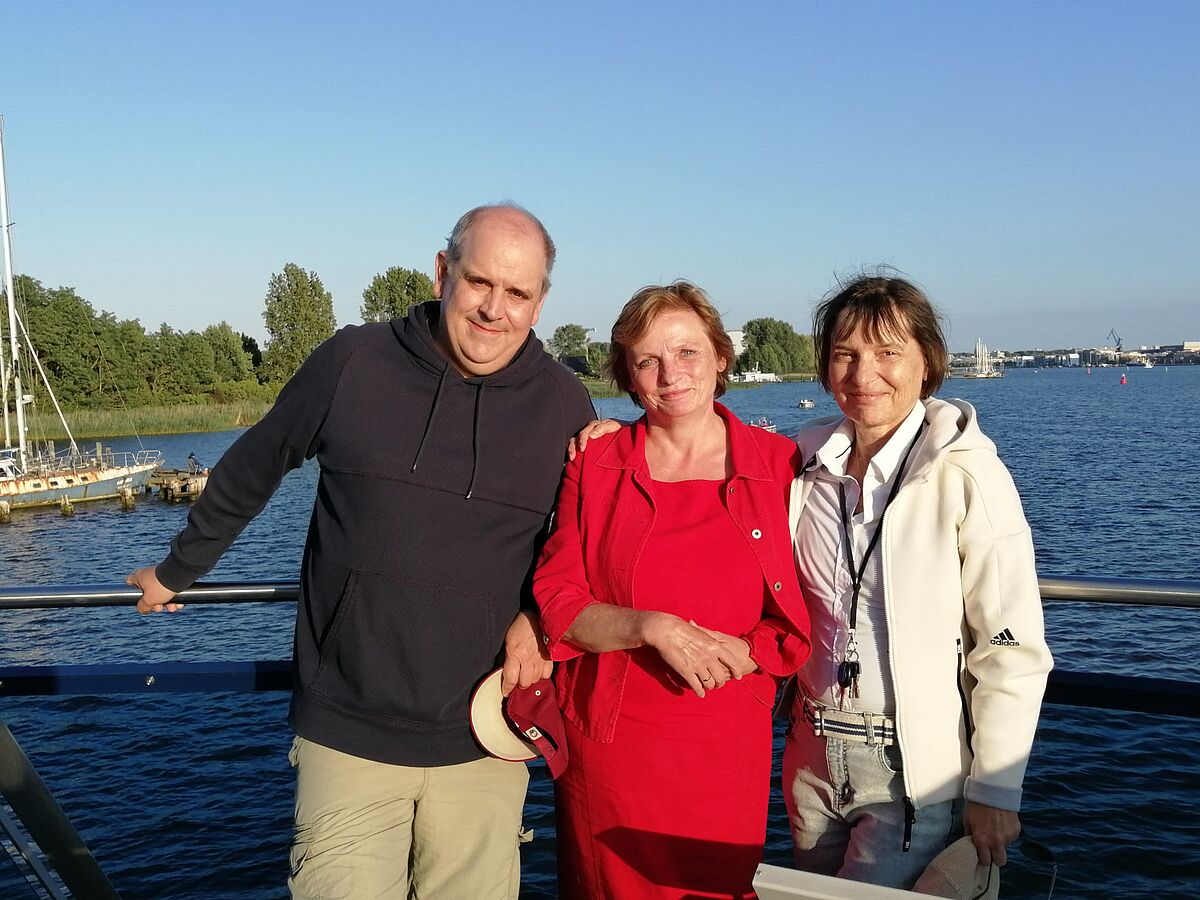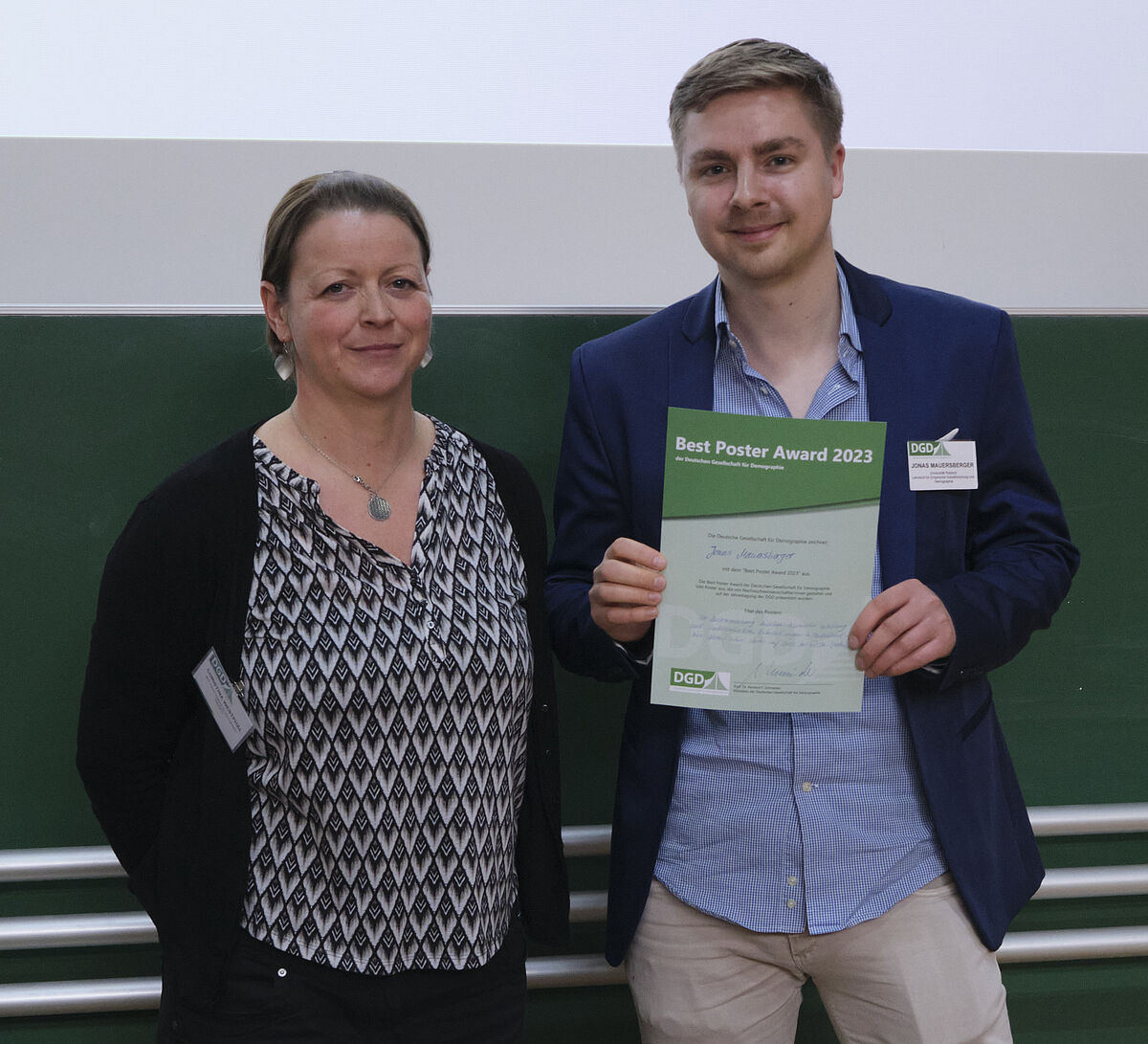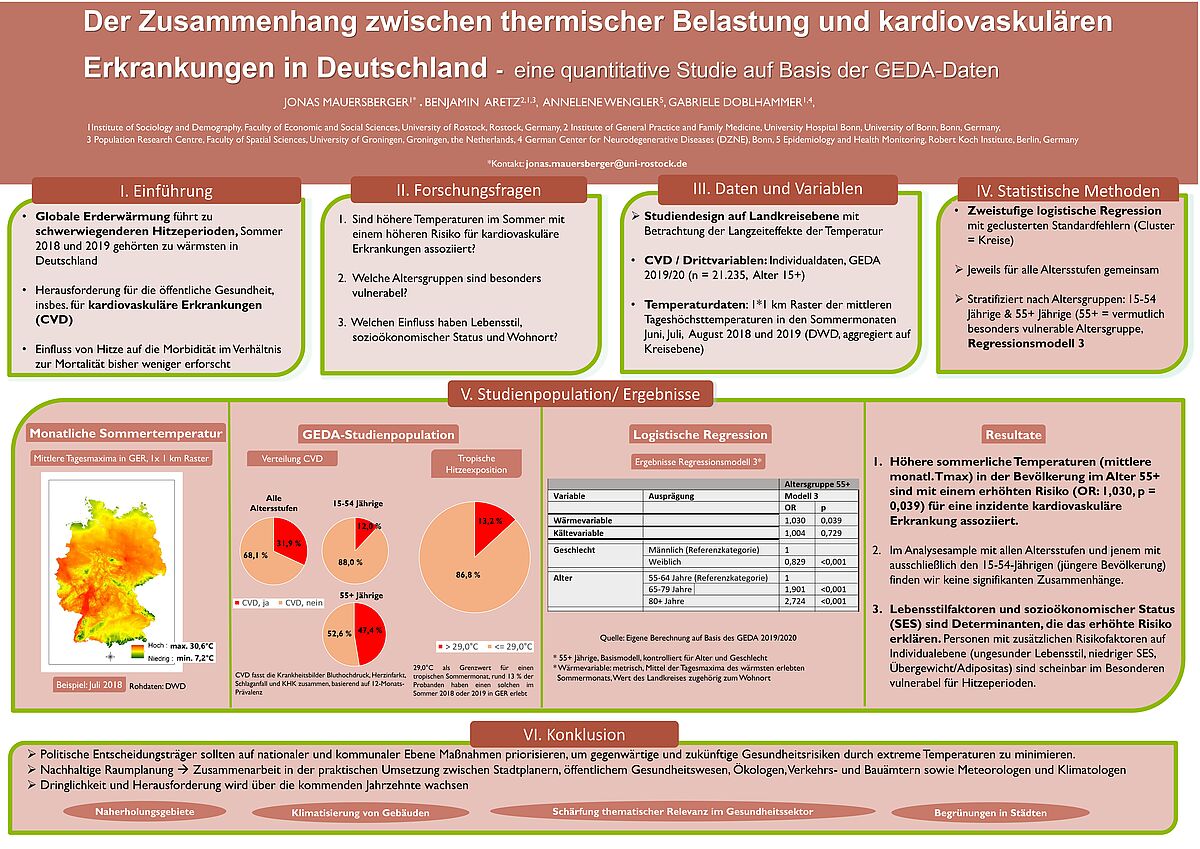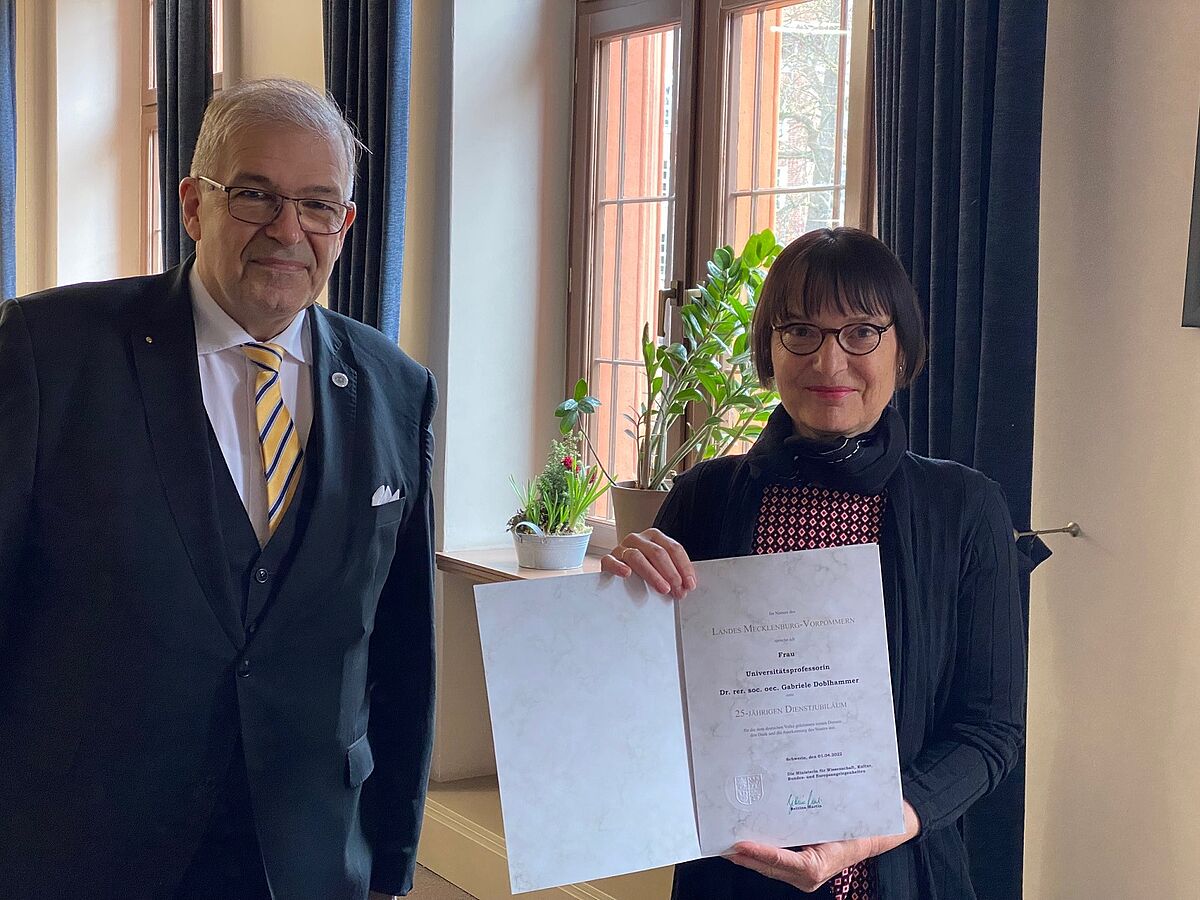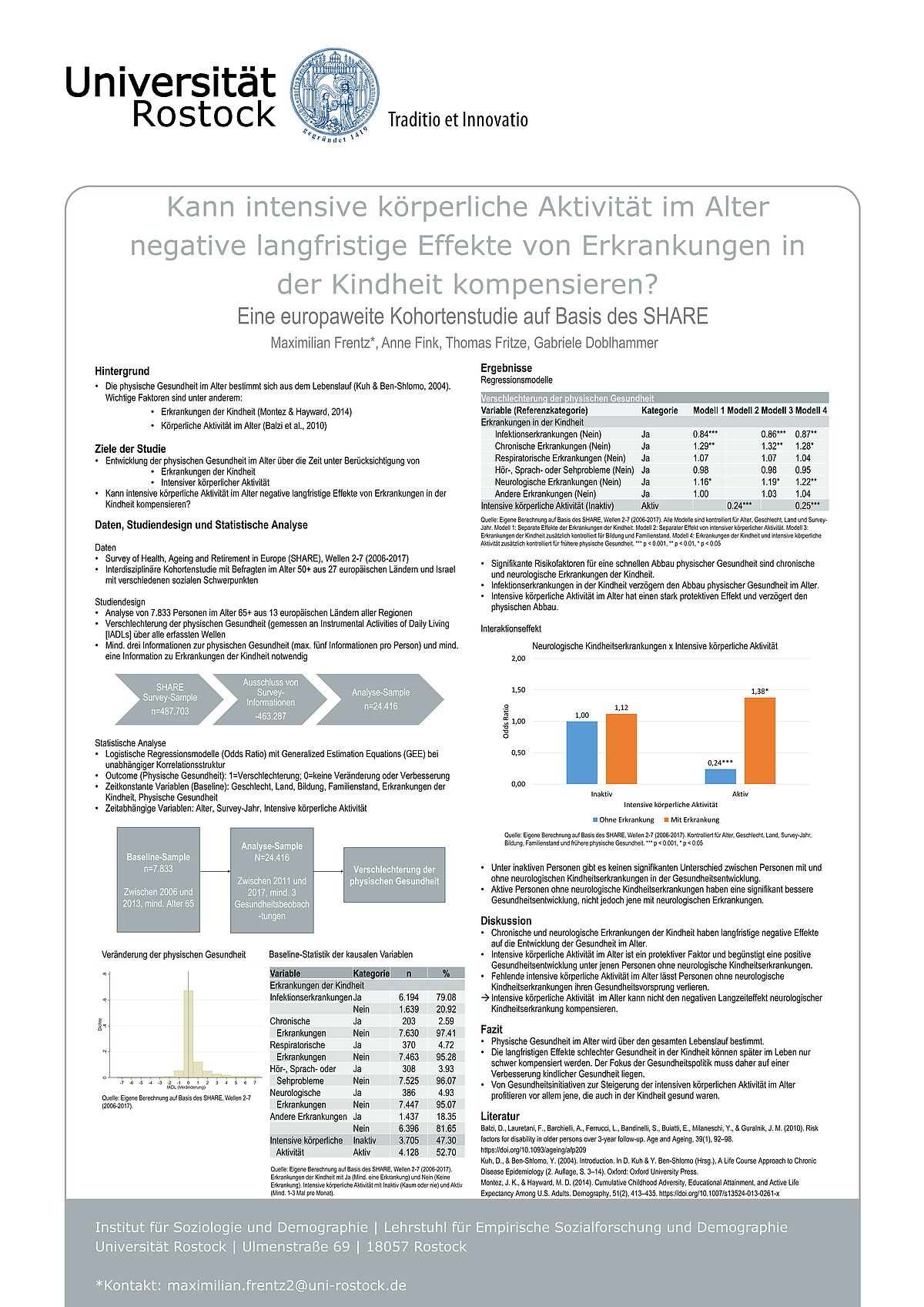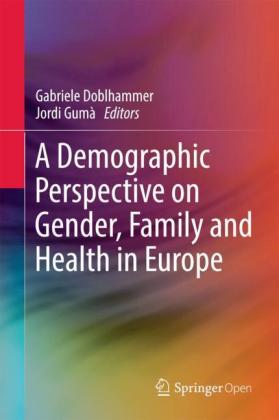Prof. Dr. Nandita Saikia as Mare Balticum Fellow at the ISD
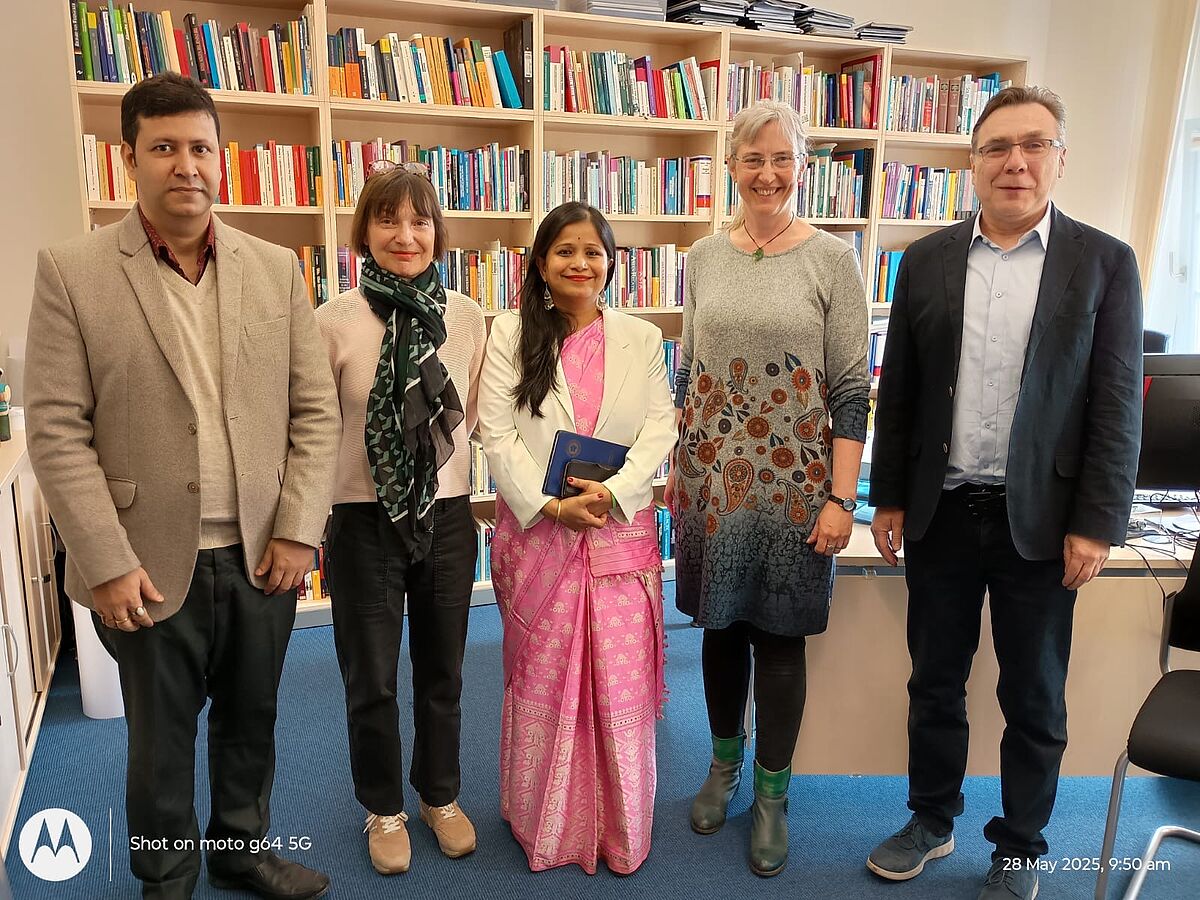
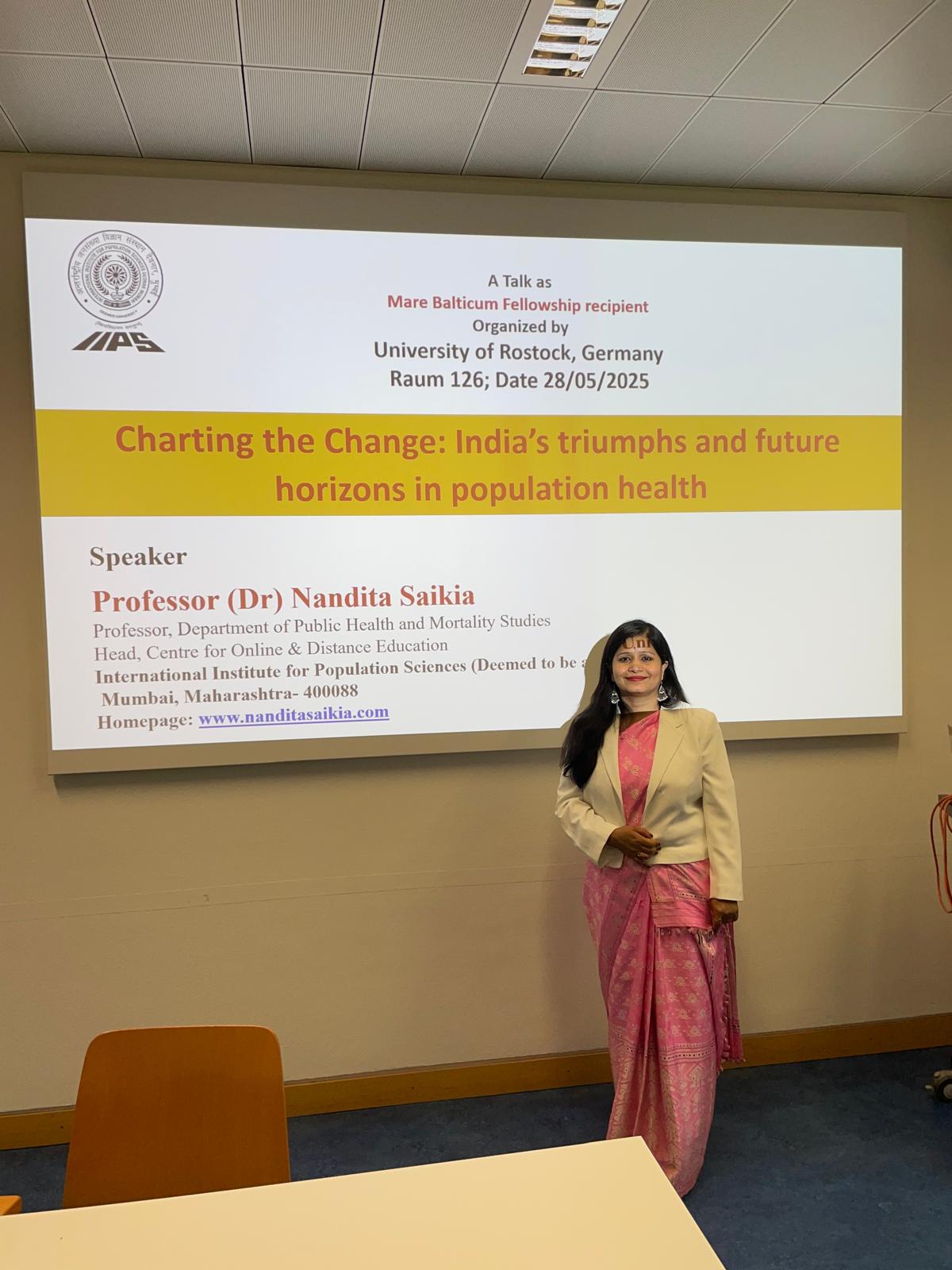
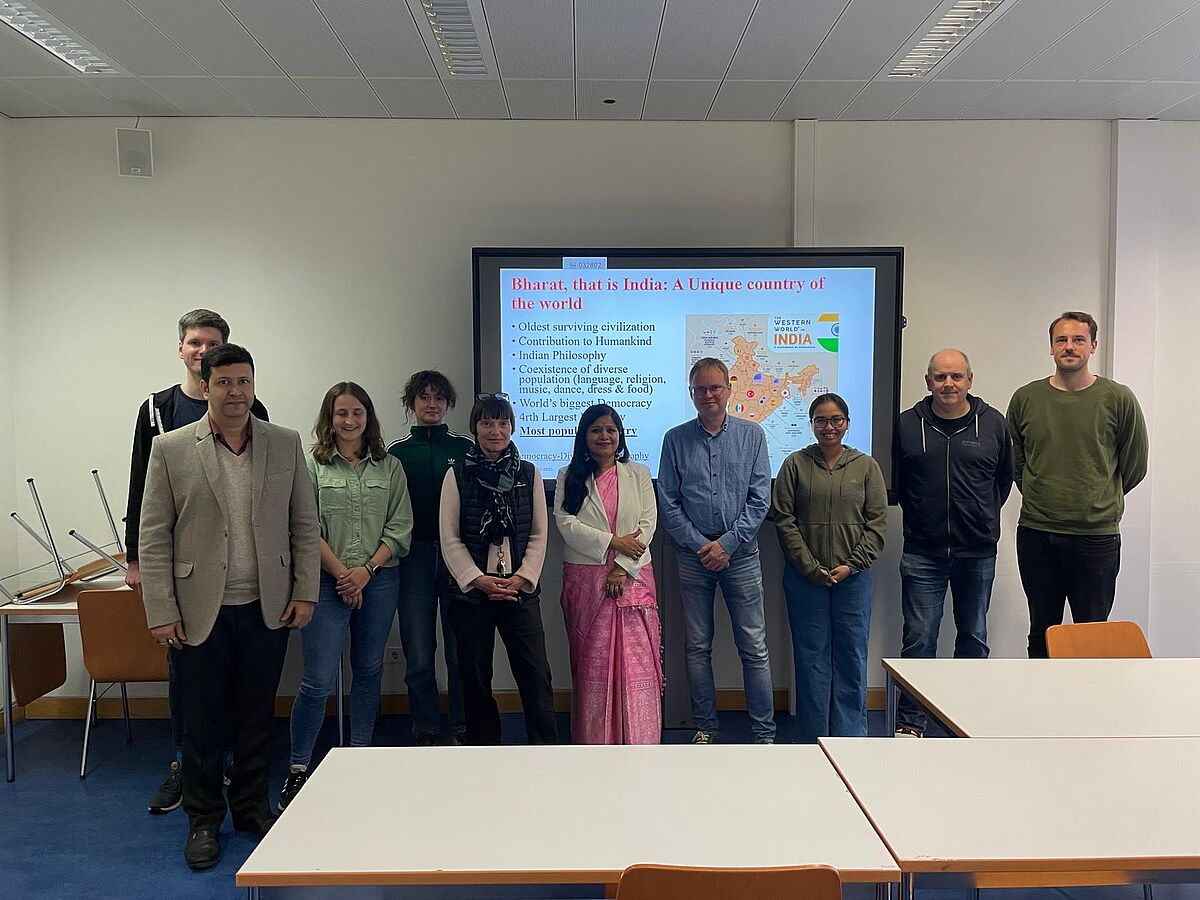
Prof. Dr. Nandita Saikia will be a visiting scholar at the Chair of Empirical Social Research and Demography (Institute of Sociology and Demography) from May 19 to June 6, 2025, as part of the Mare Balticum Fellowship Program, contributing her expertise in the fields of population studies and life expectancy. She also conducts research on social integration with regard to religious affiliation, spirituality and love of nature, biophilia and health.
Prof. Saikia is Professor of Public Health and Mortality Studies at the International Institute for Population Sciences (IIPS) in Mumbai, where she also heads the Centre for Online and Distance Education. Previously, she was a professor of population sciences at Jawaharlal Nehru University (JNU) in New Delhi and at the Institute of Economic Growth (IEG). Her academic career has taken her to some of the world's most renowned research institutes, including the Max Planck Institute for Demographic Research (MPIDR) in Germany and the International Institute for Applied Systems Analysis (IIASA) in Austria.
Her research interests include formal demography, mortality analysis, causes of mortality, health inequalities, and the demography of indigenous populations. She has published numerous articles in high-ranking international journals such as Lancet Global Health, WHO Bulletin, and Demographic Research, and is an editor for scientific journals.
During her stay at the University of Rostock, Prof. Saikia will contribute her internationally recognized research perspective to academic exchange and provide valuable impetus for demographic and health science research. As part of the Graduate Academy of the University of Rostock, Prof. Saikia will also give two lectures on the positive development of life expectancy in India and on studying and working as a social scientist in India.
Further guest lecture by Prof. Nandita Saikia on 03 June 2025
As part of the Mare Balticum Fellowship Program, another guest lecture by Prof. Nandita Saikia (International Institute for Population Sciences (IIPS) in Mumbai) will take place on June 3, 2025, at 12:30 p.m. in Room 125 (Building 1, Ulmencampus).
The lecture is titled: "Social science and demography in India and how to study and work there."
Open to all interested parties, please register in advance.
Further information:
The event will take the form of an interactive talk focusing on social science and demography in India, with a particular em-phasis on studying and working in this dynamic field within the country. The session will begin with a brief presentation by the expert, highlighting key demographic trends, social structures, and opportunities for research and professional growth in India. This will be followed by an engaging Q&A segment, where par-ticipants can ask questions about research methodologies, practical challenges, and the interplay of culture, policy, and data in India’s demographic studies. The interactive format en-courages active audience participation, fostering a collaborative learning environment to explore India's unique demographic landscape and the pathways for academic and professional en-gagement in the field.
Exploring research avenues in the fields of social science and demography within India. Identifying key areas for further exploration, including migration patterns, family structures, and inequality Opportunities for (early-career) researchers to collaborate on demographic studies in India. Exploring how India’s unique cultural context influences demo-graphic data collection and interpretation Open discussions about the complexities of studying India’s de-mographic landscape from a social science perspective.
Guest lecture by Prof. Nandita Saikia
As part of the Mare Balticum Fellowship Program, a guest lecture by Prof. Nandita Saikia (International Institute for Population Sciences (IIPS) in Mumbai) will take place on 28 May 2025, 16:00 in room 126 (House 1, Ulmencampus).
The lecture is entitled “Charting the course: India's triumphs and future horizons in population health” and will be held in English.
Registration is not required. A large attendance is welcome :-)
Demographic research: migration and life expectancy
The current issue of the infoletter “Demografische Forschung Aus erster Hand” reports on the research article “Contributions of causes of death to differentials in life expectancy by internal migrant status in the Netherlands: a population register based study, 2015-2019” by Maximilian Frentz-Göllnitz and colleagues. The study was conducted in collaboration with Dr. Fanny Janssen from the Population Research Centre in Groningen and Dr. Gabriele Doblhammer, among others.
The central result of the analyses is that people who move within a country have a lower life expectancy than people who stay in the same place.
“Although the mortality rate of internal migrants exceeded the mortality rate of permanent residents in most age groups, there were major differences, especially in old age. For example, the average life expectancy of migrants is 2.5 years lower than that of men who have not moved. The difference was even greater for women: female internal migrants have a life expectancy that is 3.5 years lower than that of women who have not moved.”
The results are surprising at first glance, as they contrast with the results of research on international migration.
“The researchers assume a selection in the “health” factor, i.e. that it is precisely those who are dependent on help or care who move to relatives or nursing homes for this reason. As this particularly affects women, Maximilian Frentz-Göllnitz points out that these older women are a vulnerable group in society that should be given greater attention.”
The article is included in "Demografische Forschung Aus erster Hand - 2025 | YEAR 22 | 1nd QUARTER - Page 1-2" and can be viewed online here.
The research paper accompanying the article is available as Open Access.
Predictors of attendance at the first follow‑up and poor visual outcome after paediatric cataract surgery in Kinshasa for the years 2001–2021
New research by Helene Schulz and colleagues has been published in Tropical Medicine and Health.
About 90% of blind children come from low- and middle-income countries. The main cause of childhood blindness is cataract. Cataract surgery can improve vision, but regular follow-up is necessary. Low attendance at follow-up is a medical and statistical challenge, as missing information can lead to biased results. Two research questions arise: what social factors influence attendance at first follow-up? What social factors influence a poor outcome of visual acuity at first follow-up?
An observational cohort study was conducted, and the total base population was analysed. The study includes children who received cataract surgery at Saint Joseph Hospital (Kinshasa, Democratic Republic of the Congo) from 2001 to 2021. Cox regression was used to examine attendance at the first follow-up (n = 1100 operated eyes), ordinal logistic regression to analyse visual acuity at the first follow-up (n = 699 operated eyes), both clustered by patient identification number. Due to the high number of missing values, multiple imputation was performed as a sensitivity analysis.
Female sex, young age, very good visual acuity after surgery, and disease in both eyes led to lower attendance at follow-up. Poor visual acuity outcome at follow-up was associated with female sex, young age, poor financial situation, blindness after surgery and nystagmus.
As regular follow-up is crucial for an improved visual acuity outcome, it is recommended that special attention needs to be paid to the groups identified in our analysis to better integrate them into follow-up. In particular, the higher risk of poor outcome in younger children is surprising and requires further analysis.
To the article (Open Access):
Schulz, H., Rakuša, E., Frech, S. et al. Predictors of attendance at the first follow-up and poor visual outcome after paediatric cataract surgery in Kinshasa for the years 2001–2021. Trop Med Health 53, 32 (2025). https://doi.org/10.1186/s41182-025-00706-8
Dementia as a predictor of palliative care: Uncovering patient patterns based on German claims data
New research by Elena Rakuša, Constantin Reinke, Gabriele Doblhammer and colleagues was published in BMC Palliative Care.
Palliative care aims to ensure a dignified and self-determined life for people facing the end of life. While palliative care is established for tumor diseases, it’s notably absent from German medical guidelines for other progressive diseases with an unfavorable prognosis such as dementia. This study will identify predictors of palliative care use in older patients and explore how these predictors relate to the probability of palliative care.
We used data from the largest German health insurance company of people over 50 years of age from the period 2014–2019. The analysis focused on the last year of life. Outcomes were outpatient and inpatient palliative care and predictors were demographics, comorbidities, therapeutic remedies and rehabilitation, care and medical interventions, medication and patient group.
The study cohort for the analysis of inpatient palliative care comprised 43,896 patients, while the cohort for the analysis of outpatient palliative care included a total of 37,430 patients. The models had appropriate discriminatory power (inpatient palliative care: concordance-index = 0.737 (95%CI = 0.721–0.754); outpatient palliative care: concordance-index = 0.689; 95%CI = 0.675–0.704) and showed appropriate calibration. A diagnosis of dementia, like a diagnosis of cancer, is predictive of inpatient palliative care and outpatient palliative care. We observed a lower probability for inpatient and for outpatient palliative care for dementia patients compared to cancer patients.
The findings highlight the need to focus palliative care on other patient groups besides cancer patients, such as dementia patients, and to facilitate access for all patients.
To the article: Rakuša, E., Reinke, C., Doblhammer, G. et al. Dementia as a predictor of palliative care: Uncovering patient patterns based on German claims data. BMC Palliat Care24, 46 (2025). https://doi.org/10.1186/s12904-025-01672-y
Doctoral program between Universität Rostock and International Institute for Population Sciences (IIPS) in Mumbai
Our PhD candidate Poulami Barman recently met Prof Nandita Saikia in Mumbai/India. Prof Saikia is Professor in Public Health and Mortality Studies at the International Institute of Population Sciences (IIPS) in Mumbai and one of the supervisors of her PhD thesis. During the meeting, they discussed the ongoing research on Mortality and Dementia Challenges in India, which is part of the joint doctoral program between the University of Rostock and IIPS. The discussion focused on refining the methods and planning future research.
The hidden role of air pollution in cognitive decline: A large population-based mediation analysis
New research by Benjamin Aretz, Gabriele Doblhammer, and Michael Heneka was published in Alzheimer’s & Dementia
Air pollution is often viewed as an outdoor hazard and threat to respiratory health. However, emerging research shows that air pollution may also affect our brain health. Fine particulate matter, known as PM2.5, is a complex mixture of many chemicals, that can be inhaled deep into the lungs. While PM2.5 exposure has long been linked to tissue damage and inflammation in the lung, its role in cognitive decline is only now gaining attention. In a recent population-based study, researchers from the universities of Rostock, Bonn, and Luxembourg have uncovered a potential link: systemic inflammation, driven by an increase in monocytes – a type of white blood cells - may be a key mediator in how PM2.5 exposure contributes to cognitive impairment.
This prospective cohort study used data from 66,254 participants aged 18+ between 2006 and 2015 from the Dutch Lifelines Cohort Study and Biobank. Causal mediation analysis was conducted to examine the impact of ambient PM2.5 exposure on cognitive processing time (CPT), using the change in white blood cell (WBC) count and its subtypes as potential mediators.
The researchers found that PM2.5 exposure correlates with a decline in cognitive processing time (CPT), a measure of how quickly the brain can respond to stimuli. Interestingly, the increase in white blood cell count, particularly of monocytes - the largest subtype involved in immune responses - mediated a significant part of this effect. "Systemic inflammation may act as a key intermediary, linking PM2.5 exposure to impaired cognitive function," explains Dr Benjamin Aretz, research scientist at the University Hospital Bonn and first author of the study. This is the first large-scale study to directly tie changes in the number of white blood cells to the cognitive effects of fine particulate matter.
While PM2.5 can directly affect the brain by crossing the blood-brain barrier and triggering local inflammation, this study highlights the broader systemic inflammation upon exposure. “We hypothesize that the number of white blood cells rises in response to pollutants,” details Prof. Gabriele Doblhammer, group leader at the DZNE in Rostock. “
As populations age and urbanization increases, understanding and addressing the role of air pollution in neurodegenerative diseases will be more important than ever.
Link to the article (Open Access): https://alz-journals.onlinelibrary.wiley.com/doi/full/10.1002/alz.14320
Aretz, B., Doblhammer, G., & Heneka, M. T. (2024). The role of leukocytes in cognitive impairment due to long‐term exposure to fine particulate matter: A large population‐based mediation analysis. Alzheimer's & Dementia. DOI: 10.1002/alz.14320
The effect of diabetes in the multifaceted relationship between education and cognitive function
New study by Constantin Reinke published in BMC Public Health:
Education has been shown to be positively associated with cognitive performance. However, the pathways via lifestyle-related disease through which education is related to cognitive performance have not been sufficiently explored. Diabetes is an important lifestyle-related disease with increasing prevalence worldwide. Low education is associated with an increased risk of developing diabetes, while diabetes may also lead to a deterioration in cognitive performance. This study aims to explore if the associations between education and cognitive function is mediated by the diabetes status among older adults.
The data utilized in this study were derived from the first two waves of the Dutch Lifelines Cohort Study (2006–2015). The analyzed sample included 26,131 individuals aged 50 years or above at baseline. The baseline assessment included measurements of educational attainment (exposure) and the potential mediator diabetes. The outcome of cognitive function was assessed using age-standardized reaction times from the psychomotor function and attention tasks, as measured by the Cogstate Brief Battery. The Cogstate Brief Battery was only conducted at the follow-up assessment, not at the baseline assessment. Faster reaction times correspond to higher cognitive performance. The study employed linear and logistic regression models, in addition to a causal mediation approach which estimated the average causal mediation effect (ACME).
Higher education was associated with a lower risk of diabetes compared to low or middle education as well as with faster reaction times, implying better cognitive function. Diabetes was associated with slower reaction times. Most importantly, the mediation approach identified a significant indirect effect of education on cognitive function via the diabetes status.
The findings emphasize the potentially importance of diabetes in explaining the role of education in promoting healthy cognitive function and mitigating the risk of cognitive decline. Early detection and treatment of diabetes may be particularly beneficial for individuals with low or middle levels of education in order to maintain good levels of cognitive function.
Link to the article (Open Access): https://rdcu.be/dVmon
Reinke, Constantin (2024): The effect of diabetes in the multifaceted relationship between education and cognitive function. BMC Public Health, 24 (1), 2584.
The Chair visits the Käthe Kollwitz Grammar School
Prof Gabriele Doblhammer, Poulami Barman and Anna-Victoria Holtz gave a student lecture at the Käthe-Kollwitz Music Grammar School in Rostock and provided an insight into demography and research and teaching at the university. Among other things, the tenth-graders and the grade 11 geography course learnt how to interpret life expectancy, were given an overview of the population development of India and Germany and how statistical data is collected and processed into forecasts.
The Chair would like to thank the school for the invitation, the students' interest and their great co-operation!
Read more:
Demographic Developments in Eastern and Western Europe Before and After the Transformation of Socialist Countries
Editors: Gabriele Doblhammer, Zsolt Spéder / published in: Comparative Population Studies (CPoS)
Over the past three decades, Europe has experienced significant transformations as former socialist countries transitioned away from totalitarian regimes towards Western European social models. This shift involved adopting competitive political systems, reintroducing market economies based on private ownership, and seeking membership in the European Union. The changes also led to reforms in welfare state policies and labor markets, resulting in increased economic opportunities but also generating uncertainties. These transitions affected all layers of society, with influences not only limited to Eastern Europe but also impacting Western Europe, including shifts in gender norms and family patterns. Additionally, disparities in life expectancy and heightened international immigration have emerged. The profound changes since the early 1990s have prompted shifts in demographic behavior, though the extent and specific behaviors favored are subjects of ongoing inquiry. The special issue reevaluates the transformation post-1989/90 from a theoretical and comparative perspective, offering an understanding of demographic changes in family dynamics, mortality, health, and migration. This was achieved by gathering insights from Eastern, Central, and Western European researchers, both established and emerging, resulting in a collection of ten articles covering various aspects. Despite differences in demographic processes across Europe, the special issue showcases European cooperation and convergence in demographic research, highlighting the diversity of perspectives and findings in this field.
Here is the link (open access): https://www.comparativepopulationstudies.de/index.php/CPoS/S_ISSUE
Doblhammer, G. and Spéder, Z. 2024. Editorial on the Special Issue “Demographic Developments in Eastern and Western Europe Before and After the Transformation of Socialist Countries”. Comparative Population Studies. 49, (May 2024).
Publication in "Schattenblick" magazine
The article entitled "Antibiotics and dementia: Antibiotic therapies can delay the onset of dementia" from "Demografische Forschung aus erster Hand" by Elena Rakuša has been published in Schattenblick magazine.
Link to the article in Schattenblick magazine:
Original article:
Rakuša, E., Doblhammer, G., Fink, A., Heneka, M., & Tamgüney, G. (2023). Sporadic Use of Antibiotics in Older Adults and the Risk of Dementia: A Nested Case-Control Study Based on German Health Claims Data. Journal of Alzheimer's disease, 93(DZNE-2023-00678), 1329-1339.
DOI: 10.3233/JAD-221153
Top Downloaded Article in "Alzheimer`s & Dementia"
Wow, our article about "Dementia risk predictions from German claims data using methods of machine learning" (Constantin Reinke, Gabriele Doblhammer, Matthias Schmid and Thomas Welchowski) is a #TopDownloadedArticle in Alzheimer's & Dementia!
Open Access: Link
Cancellation of courses on Thu and Fri (21/22/12/2023)
INFO: The courses "59374: Demographische und Sozioökonomische Datenquellen" on Thursday and "59325: Einführung in die Methoden und Techniken der empirischen Sozialforschung (VORLESUNG)" on Friday by Prof. Gabriele Doblhammer are cancelled due to illness.
Informal care and mental health in Germany
New paper from Daniela Georges and Gabriele Doblhammer published in Aging & Mental Health
Informal caregiving influences mental health. Health disparities in informal caregiving are associated with migration status.
Policies to promote health in an aging society should take into account differences in short- and long-term care and between migrants and non-migrants.
Link to the article: https://doi.org/10.1080/13607863.2023.2271866
Summer party of the WSF
In perfect weather, the faculty celebrated its annual summer festival on the Warnow River on 28 June 2023. The passenger ship "MS Rostocker 7" took us through the Rostock harbour area to the open sea in Warnemünde and back. The evening ended at the pier in the city harbour. The band Les Bummms Boys provided the musical accompaniment in the evening. A summer buffet provided culinary highlights.
Festive goodbye
On the occasion of the farewell of Benjamin Aretz (now: Institute of General Practice and Family Medicine, University of Bonn) and Sina Jankowiak (project staff member of the German Alzheimer Society Mecklenburg-Vorpommern e.V.), the Chair celebrated together with alumni Daniel Kreft, now Statistical Office of Rhineland-Palatinate, and Christina Westphal (MPIDR).
DGD Annual Conference 2023: Jonas Mauersberger presents research on thermal stress and cardiovascular disease
Honoured with the Best Poster Award 2023 of the German Society for Demography
-The study was conducted as part of the bachelor thesis-
Background:
- Global warming leads to more severe heat spells, summers of
2018 and 2019 were among the warmest in Germany
- Challenge for public health,
especially for cardiovascular diseases (CVD)
- Influence of heat on morbidity in relation to mortality less researched so far
Research questions:
1. are higher temperatures in summer associated with a
associated with a higher risk of cardiovascular disease?
2. which age groups are particularly vulnerable?
3. what influence do lifestyle, socio-economic status and place of residence have?
Results:
1. higher summer temperatures (mean monthly Tmax) in the population aged 55+ are associated with an increased risk (OR: 1.030, p = 0.039) of incident cardiovascular disease.
2. in the analysis sample with all age groups and that with
15-54 year olds (younger population), we find no significant associations.
3. Lifestyle factors and socioeconomic status (SES)
are determinants that explain the increased risk.
Individuals with additional risk factors at the individual level
(unhealthy lifestyle, low SES, overweight/obesity) are apparently
seem to be particularly vulnerable to hot spells.
Further information: see poster
Demographic Research Journeys Blog - Part 2
6 February - 16 March 2023: Barcelona / Centre d'Estudis Demogràfics (CED) and Institute for Global Health (IsGlobal).
Prof. Gabriele Doblhammer blogs about her research stay in Barcelona:
"Scientists travel a lot. Nothing is as important as personal exchange to develop new ideas and start collaborations. This blog is intended to give a personal overview of the research and study landscape in the field of demography and population science as I experience it on my conference and research trips. The mixture of personal experiences and professional information is meant to give an impression of how international science and research work and what the life of a scientist on the road is like."
Click here for the blog with regular posts and photos:
Colloquium at CED (Barcelona)
Prof. Gabriele Doblhammer will give a lecture on "Health, Dementia and Cognitive Decline in Aging Populations - how can Demographic Research help to meet these Challenges?" at the CED (The Centre of Demographic Studies) in Barcelona on Thursday, 16.02.2023.
It will be discussed to what extent the epidemiological measures obtained from health insurance data accurately reflect disease incidence and associated mortality. Our latest findings based on data from the German statutory health and long-term care insurance schemes indicate that rising life expectancy is accompanied by an increase in healthy life years and a compression of life years with dementia and the need for long-term care. The presence of dementia is one of the most important factors influencing survival into old age. In Germany, population ageing and increasing life expectancy will result in dementia being the most common disease at the time of death among older women and the second most common among men by 2060, when the morbidity profile will remain the same.
More information on this page: Colloquium CED- 16.02.2023
The association of unhealthy and healthy food store accessibility with obesity prevalence among adults in the Netherlands: A spatial analysis
Authors: Benjamin Aretz, Rafael Costa, Gabriele Doblhammer, Fanny Janssen
Access to unhealthy and healthy foods is associated with the prevalence of obesity worldwide. However, evidence on the spatial relationship between food supply and obesity has been scarce for Europe.
This ecological study examines spatial patterns of obesity prevalence among adults (19 years and older) in the Netherlands in 2016. Access to unhealthy food was found to be most significant for obesity in urban areas. The wide availability of food was found to be more important than the immediate 'food environment'.
Public policies to combat obesity could be more effective if they reduce the presence of unhealthy foods rather than increasing the availability of healthy foods. Furthermore, they should focus on urban regions and clusters of high obesity, taking into account a broader food environment.
The article is available as open access.
Aretz, B., Costa, R., Doblhammer, G., & Janssen, F. (2022). The association of unhealthy and healthy food store accessibility with obesity prevalence among adults in the Netherlands: A spatial analysis. SSM-Population Health, 101332. DOI: doi.org/10.1016/j.ssmph.2022.101332
Blog on demographic research trips
Prof. Gabriele Doblhammer reports in a blog about her research stay in Canberra / Australia:
"Scientists travel a lot. Nothing is as important as personal exchange to develop new ideas and start collaborations. This blog is intended to give a personal overview of the research and study landscape in the field of demography and population science as I experience it on my conference and research trips. The mixture of personal experiences and professional information is intended to give an impression of how international science and research work and what the life of a scientist on the road is like."
Click here for the blog with regular posts and photos:
Stents versus bypass surgery: 3-year mortality risk of patients with coronary interventions aged 50+ in Germany
New research by Daniel Kreft and Prof. Gabriele Doblhammer (among others):
Due to demographic ageing, the prevalence of coronary artery disease is expected to increase in the future, leading to an increasing demand for stenting and bypass surgery. The study was dedicated to the mortality risk of patients after conventional coronary artery bypass grafting (CABG) or an endovascular procedure by implanting bare-metal stents (BMS) or drug-eluting stents (DES).
The article is available as open access.
Nestler, S., Kreft, D., Donndorf, P. et al. Stents versus bypass surgery: 3-year mortality risk of patients with coronary interventions aged 50+ in Germany. J Cardiothorac Surg 17, 246 (2022). DOI: https://doi.org/10.1186/s13019-022-02014-2
Demographic Research: Dementias or cancer? - The most common diseases at the end of life
The new research paper "Can dementia become the most prevalent disease at the time of death in Germany? Projections up to the year 2060 for the five most important diseases at the time of death", conducted by Gabriele Doblhammer, Thomas Fritze, Constantin Reinke and Anne Fink, is the topic of the latest issue of the infoletter "Demografische Forschung Aus erster Hand".
The study investigated which diseases will predominate at the end of life in the future. The analyses were carried out on the basis of data from the population projection of the Federal Statistical Office, the Human Mortality Database and the Allgemeine Ortskrankenkassen (AOK).
The article is included in "Demografische Forschung Aus erster Hand - 2022 | JAHRGANG 19 | 3. QUARTAL - Seite 4" and can be viewed online here.
The research paper for the article is available as Open Access.
Demographic Research: Refugees and Health
The current issue of the Infoletter "Demografische Forschung Aus erster Hand" reports on the research article "Health determinants among refugees in Austria and Germany: a propensity-matched comparative study for Syrian, Afghan, and Iraqi refugees" by Daniela Georges. The project was carried out in cooperation with Isabella Buber-Ennser and Bernhard Rengs from the Vienna Institute of Demography as well as Judith Kohlenberger and Gabriele Doblhammer.
The central result of the analyses is that refugees in Austria assess their state of health better than those in Germany.
"Those who live as refugees or asylum seekers in Germany have limited access to health services for up to one and a half years. In Austria, on the other hand, the health system is open to migrants from the very beginning. The proportion of refugees who reported being in good health here was twelve percentage points higher than in Germany."
The article is included in "Demographic Research Firsthand - 2022 | YEAR 19 | 2nd QUARTER - Page 4" and can be viewed online here.
The research paper accompanying the article is available as Open Access.
Opportunities for healthy ageing: a life course perspective on dementias and mortality
The chapter "Opportunities for healthy ageing: a life course perspective on dementias and mortality" by Christina Westphal and Gabriele Doblhammer has been published as part of the book "Living and health in old age" of the Vechtaer Beiträge zur Gerontologie. The chapter is dedicated to demographic considerations on dementia in old age and provides an overview of the influence of early life events, risk factors in middle age and seasonal mortality.
The book is available as Open Access.
Westphal, Christina; Doblhammer, Gabriele: Chancen für gesundes Altern: eine Lebenslaufperspektive auf Demenzen und Sterblichkeit, In: Andrea Teti et al. (Ed.): Wohnen und Gesundheit im Alter, Vechtaer Beiträge zur Gerontologie, Springer VS Wiesbaden, S.11-29 (2022). DOI: https://doi.org/10.1007/978-3-658-34386-6_2
Can dementia become the most prevalent disease at the time of death in Germany? Projections up to the year 2060 for the five most important diseases at the time of death
Authors: Prof. Dr. Gabriele Doblhammer, Thomas Fritze, Constantin Reinke and Anne Fink
The research found that dementia was already the most common disease at the time of death among German women aged 70 and over in 2014-2017, while it still ranked fifth among German men. Population ageing and increasing life expectancy will result in dementia ranking first for women and second for men if the morbidity profile at the time of death remains constant.
Projected into the future, taking into account other diseases, cancer will be the most prevalent disease at the time of death for both sexes.
In addition to projections of causes of death, projections of diseases at the time of death are also necessary to better prepare for the needs of people in their last phase of life.
The article can be viewed in full at the following link: article
Doblhammer, G., Fritze, T., Reinke, C. et al. Can dementia become the most prevalent disease at the time of death in Germany? Projections up to the year 2060 for the five most important diseases at the time of death. Population Ageing (2022).
Mobile start the wave: Rostock researchers on the connection between social status and the spread of the pandemic
Constantin Reinke spoke in an interview with "Neues Deutschland - Journalismus von links" about the role of social status and other factors influencing the spread of COVID-19 at the beginning of the pandemic.
The interview can be read at the following link: interview
Doblhammer G, Reinke C, Kreft D Social disparities in the first wave of COVID-19 incidence rates in Germany: a county-scale explainable machine learning approach BMJ Open 2022;12:e049852. doi: 10.1136/bmjopen-2021-049852
Potential of prevention strategies for the modifiable risk factor type 2 diabetes with relation to the future number of dementia patients in Germany
A multi-state projection through 2040.
Authors: Anne Fink, Achim Dörre, Ilja Demuth and Gabriele Doblhammer.
The background of the research is the influence of prevention strategies with regard to type 2 diabetes as a modifiable risk factor for dementia and their consequences for the future number of dementia patients in Germany.
A random sample of health insurance data (N = 250,000) of insured persons aged 50+ and data on population size and mortality rates in 2015 from the Human Mortality Database was drawn.
A relative reduction in diabetes incidence of 1% per year would reduce dementia cases by about 30,000, while a 1% reduction in dementia incidence among people with diabetes would result in 220,000 fewer dementia cases. Both prevention strategies together would prevent 240,000 cases of dementia in 2040.
Crucial to the future number of people with dementia is the increase in life expectancy. Strategies to improve diabetes management have the potential to curb the increase in the number of dementia patients in the coming decades.
Now published as:
Fink, A.; Doerre, A.; Demuth, I.; Doblhammer, G. (2022): Potential of prevention strategies for the modifiable risk factor type 2 diabetes with relation to the future number of dementia patients in Germany– a multi-state projection through 2040. BMC Neurol 22, 157 (2022). DOI: https://doi.org/10.1186/s12883-022-02682-6
Dementia risk predictions from German claims data using methods of machine learning.
Authors: Constantin Reinke, Prof. Dr. Gabriele Doblhammer, Matthias Schmid and Thomas Welschowski
The study addressed the question of whether German health insurance data are suitable for dementia risk prediction, how machine learning (ML) compares to classical regression, and what the important predictors of dementia risk are.
Data from the largest German health insurance fund have been analysed, including 117,895 dementia-free people aged 65+. Follow-up was 10 years. Predictors included age-related diseases, medical prescriptions, age and gender.
Antipsychotic medications and cerebrovascular disease (strokes, vascular disease), but also less established specific antibacterial medical prescription have been identified as important predictor variables.
Now published as:
Reinke, C.; Doblhammer, G.; Schmid, M.; Welchowski, T. (2022): Dementia risk predictions from German claims data using methods of machine learning. In: Alzheimer's & Dementia. DOI: https://doi.org/10.1002/alz.12663
Press release of the University of Rostock: Rostock researchers expect Covid 19 pandemic in autumn to be similar to the first two waves.
To the press release about the research of Prof. Gabriele Doblhammer, Constantin Reinke and Dr. Daniel Kreft.
Podcast: Demographic research in an ageing society
Prof. Dr. Gabriele Doblhammer spoke in the KnowlAGE podcast on the topic of age(s) and society about opportunities and challenges in influencing processes that can contribute to a good life in old age.
25 Years of Research in Rostock
Prof. Dr. Schareck, Rector of the University of Rostock, congratulates Gabriele Doblhammer to her 25th anniversary at the university.
Press release of the University of Rostock: Rostock researchers find influence of fine dust on brain performance
To the press release on the research by Benjamin Aretz and Prof. Gabriele Doblhammer.
Social disparities in the first wave of COVID-19 incidence rates in Germany
A county-scale explainable machine learning approach
Authors: Gabriele Doblhammer, Constantin Reinke, Daniel Kreft
Knowledge about the socioeconomic spread of the first wave of COVID-19 infections in Germany is scattered across different studies. We explored whether COVID-19 incidence rates differed between counties according to their socioeconomic characteristics using a wide range of indicators.
We used data from the Robert Koch-Institute (RKI) on 204 217 COVID-19 diagnoses in the total German population of 83.1 million, distinguishing five distinct periods between 1 January and 23 July 2020. For each period, we calculated age-standardised incidence rates of COVID-19 diagnoses on the county level and characterised the counties by 166 macro variables. We trained gradient boosting models to predict the age-standardised incidence rates with the macrostructures of the counties and used SHapley Additive exPlanations (SHAP) values to characterise the 20 most prominent features in terms of negative/positive correlations with the outcome variable.
The first COVID-19 wave started as a disease in wealthy rural counties in southern Germany and ventured into poorer urban and agricultural counties during the course of the first wave. High age-standardised incidence in low socioeconomic status (SES) counties became more pronounced from the second lockdown period onwards, when wealthy counties appeared to be better protected. Features related to economic and educational characteristics of the young population in a county played an important role at the beginning of the pandemic up to the second lockdown phase, as did features related to the population living in nursing homes; those related to international migration and a large proportion of foreigners living in a county became important in the postlockdown period.
High mobility of high SES groups may drive the pandemic at the beginning of waves, while mitigation measures and beliefs about the seriousness of the pandemic as well as the compliance with mitigation measures may put lower SES groups at higher risks later on.
Doblhammer G, Reinke C, Kreft D Social disparities in the first wave of COVID-19 incidence rates in Germany: a county-scale explainable machine learning approach BMJ Open 2022;12:e049852. doi: 10.1136/bmjopen-2021-049852
"Spektrum der Wissenschaft": Fine particulate matter directly affects the brain
The new issue of the magazine "Spektrum der Wissenschaft" reports on the research article "Long-term exposure to fine particulate matter, lung function and cognitive performance: A prospective Dutch cohort study on the underlying routes" by Benjamin Aretz and Prof. Dr. Gabriele Doblhammer.
The article is included in "Spektrum - Die Woche 47/2021" or can be viewed online.
The research paper accompanying the article is available as Open Access.
Development of demand for implants
Published in the book "Strategies of implant development with high innovation potential".
Authors: Dr. Daniel Kreft, Dipl.-Pol. Alexander Barth, Prof. Dr. Gabriele Doblhammer
Overview: Potentials from demography and epidemiology
"In order to be able to assess the economic profitability of a medical technology development, an estimation of demand is essential. In the field of minimally invasive surgical treatment of degenerative diseases, the development of the age composition of a population plays a decisive role in estimating future demand. For this purpose, population and epidemiological forecasting methods have been developed to estimate the impact of potential developments in the age structure or the frequency of new disease, recovery and lethality. After an introductory presentation of past and expected demographic and health trends in Germany, an elaboration on important measures (prevalence and incidence) and methods (forecasting techniques) for demand estimation and important problems to be considered in interpretation will follow. The section will conclude with a case study using open-angle glaucoma as an example. Here, based on analyses of health insurance data, the glaucoma sufferers are forecast for selected countries up to the year 2060."
Kreft D., Barth A., Doblhammer G. (2021) Nachfrageentwicklung bei Implantaten. In: Löschner U., Siegosch F., Fleßa S. (eds) Strategien der Implantatentwicklung mit hohem Innovationspotenzial. Springer Gabler, Wiesbaden. https://doi.org/10.1007/978-3-658-33474-1_4
The second wave of SARS-CoV-2 infections and COVID-19 deaths in Germany - driven by values, social status and migration background?
A county-scale explainable machine learning approach
Authors: Prof. Dr. Gabriele Doblhammer, Dr. Daniel Kreft, Constantin Reinke
There is a general consensus that SARS-CoV-2 infections and COVID-19 deaths have hit lower social groups the hardest, but no individual-level information on socioeconomic characteristics of infections and deaths exists for Germany. The aim of this study was to identify the most important characteristics explaining SARS-CoV-2 infections and COVID-19 deaths during the second wave upsurge in Germany. Used 155 indicators to characterise counties in nine geographic, social, demographic and health domains. Important findings of the research are that counties with low SES were important drivers in the second wave, as were those with high international migration and a high proportion of foreigners and a large nursing home population. During the period of strong exponential increase in infections, the proportion of the population that voted for the Alternative for Germany (AfD) party in the last federal election was among the top characteristics that correlated with high incidence and death rates.
Doblhammer, G.; Kreft, D.; Reinke, C. (2021): The second wave of SARS-CoV-2 infections and COVID-19 deaths in Germany - driven by values, social status and migration background? A county-scale explainable machine learning approach. DOI: https://doi.org/10.1101/2021.04.14.21255474.
Now published as:
Doblhammer, G.; Kreft, D.; Reinke, C. (2021): Regional Characteristics of the Second Wave of SARS-CoV-2 Infections and COVID-19 Deaths in Germany. Int. J. Environ. Res. Public Health 2021, 18, 10663. DOI: https://doi.org/10.3390/ijerph182010663
Podcast episode: Social differences in Covid-19 infections of the first wave
Prof. Dr. Gabriele Doblhammer, Dr. Daniel Kreft and Constantin Reinke have presented their research
"Social differences in first-wave Covid-19 infections"
as part of the interdisciplinary podcast series Learning from the Crisis: Covid19 and the Consequences for Society. The focus is on the socio-economic distribution of COVID-19 infections in Germany during the first wave. The researchers investigated whether the risk of COVID-19 infection differs between regions depending on their socioeconomic characteristics. Listen to episode here
Podcast episode: The connection between gender and Covid-19 infections - How different contact behaviour of men and women affects the spread of SARS-Cov-2
Prof. Dr. Gabriele Doblhammer and Dr. Achim Dörre have presented their current research for the podcast series "Learning from the crisis: Covid19 and the consequences for society. An interdisciplinary podcast series on the Corona pandemic".Listen here
Maximilian Frentz presented his research at Research Camp 2020
Can intensive physical activity in old age compensate for negative long-term effects of childhood diseases?
Background: Research results of the last decades repeatedly show that early life circumstances can have an impact on health in old age. The present study investigates (1) to what extent childhood illnesses influence physical health in old age and (2) whether negative long-term consequences can be compensated by physical activity in old age.
Methods: Analyses are based on the Survey of Health, Ageing and Retirement in Europe (SHARE), looking at 7,833 people aged 65+ with at least three health measurements over waves 2-7 (2006-2017) (24,416 observations). Deterioration in physical health (measured as Instrumental Activities of Daily Living [IADLs]) is associated in panel analyses with retrospectively collected information on childhood illness, as well as information on intensive physical activity in old age and sociodemographic characteristics.
Results: Infectious diseases in childhood were associated with a significantly lower risk of IADL worsening in old age, chronic and neurological diseases with significantly increased risk. Respiratory diseases, hearing, vision or speech problems and other childhood diseases had no significant effects. Intensive physical activity in old age was significantly protective against IADL worsening, but only partially so with respect to the negative long-term effects of childhood neurological diseases. Both the more highly educated and the married had significantly lower risks of IADL deterioration, but no mediation effects were found in relation to childhood diseases.
Conclusion: Intensive physical activity in old age has beneficial effects on health, but cannot compensate for negative long-term consequences of poor childhood health.
Dementias are among the most expensive diseases
Prof. Gabriele Doblhammer in an interview with FAZ Sep. 2019
The current publishing special of the Frankfurter Allgemeine Zeitung published an interview with Gabriele Doblhammer on the developments of memory dementias and their challenges for society and care.
Publication: A Demographic Perspective on Gender, Family and Health in Europe (Gabriele Doblhammer, Jordi Gumà)
This open access book examines the triangle between family, gender, and health in Europe from a demographic perspective. It helps to understand patterns and trends in each of the three components separately, as well as their interdependencies. The book compares twelve European countries reflecting different welfare state regimes and offers country-specific studies conducted in Austria, Germany, Italy and Sweden.
For download click on conver ⇒
2018-03-11 - Article in the FAZ_ Alzheimer's does not have to be
In March, the FAZ published an article about dementia and the increasing number of new cases. Prof. Doblhammer gives an outlook on the development in the coming years.
2018-01-12 - Presentation of doctoral certificates

On 12 January 2018, Prof. Wolfgang Schareck and Prof. Martin Benkenstein presented the well-deserved doctoral certificates to our colleagues Dr Anne Fink, Dr Thomas Fritze and Dr Daniel Kreft at a ceremony in the University Church. We warmly congratulate.


